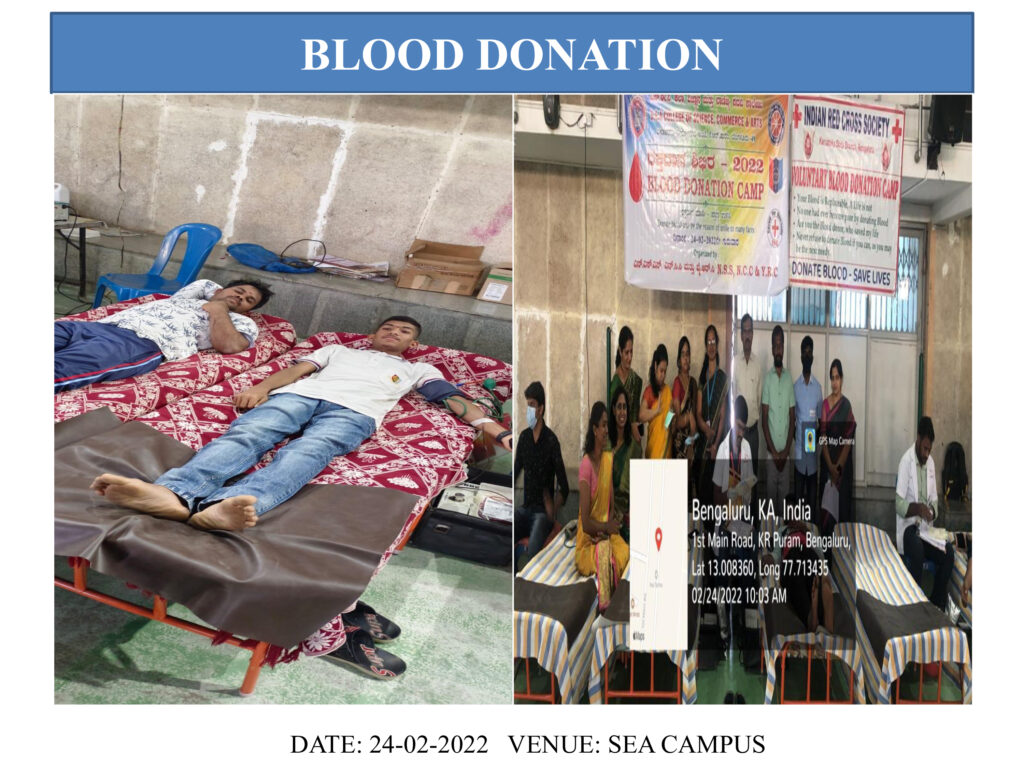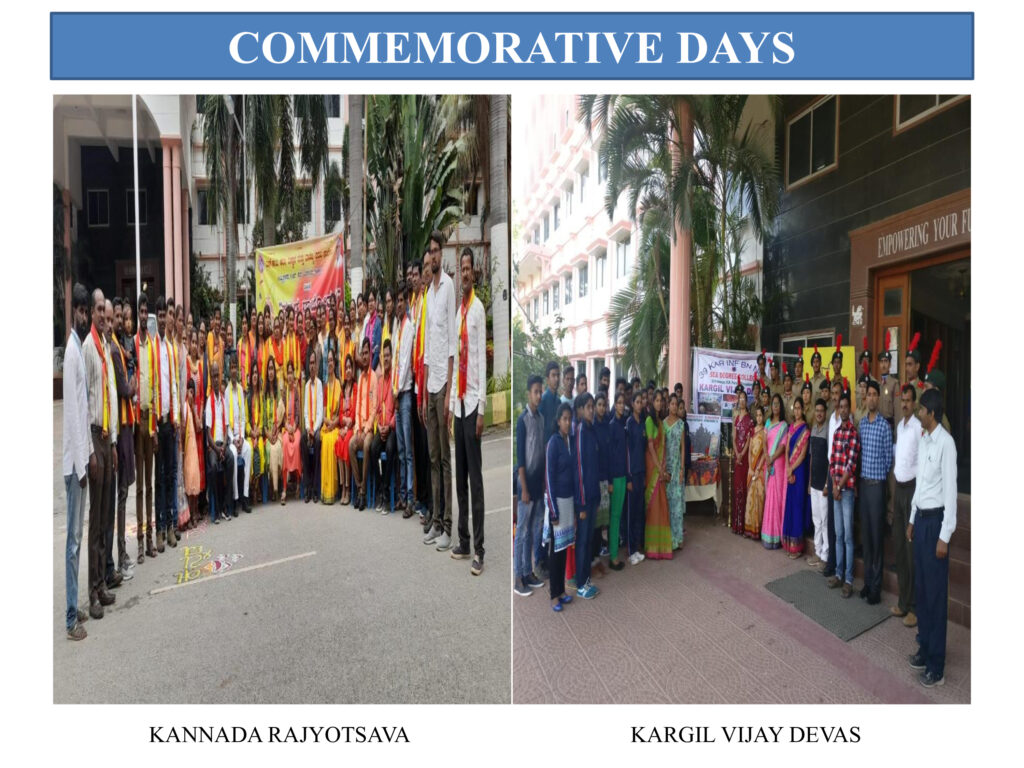Motto
The Motto of NSS “Not Me but You” is a terse expression. On the face, it is quite simple and short. But behind it lies a lot of meaning. It is very deep and suggestive and is keeping with the spirit of service for others. The expression stands for two things: Forgetting and surrendering the self and rendering selfless service to others. The word ‘Not’ before ‘Me’ is to reduce the self to nothing and the Word ‘But’ before ‘You’ can be expanded as follows: – “I do not live for me but for you.” “The world is not only for me but to you also.”
NSS Aim
The programme aims to inculcate social welfare in students and to provide service to society without bias. NSS volunteers work to ensure that everyone who is needy gets help to enhance their standard of living and lead a life of dignity. In doing so, volunteers learn from people in villages how to lead a good life despite a scarcity of resources. it also provides help in natural and man-made disasters by providing food, clothing, and first aid to the disaster’s victims.
The National Service Scheme (NSS)is an Indian government-sponsored public service program conducted by the Ministry of Youth Affairs and Sports of the Government of India. Popularly known as NSS, the scheme was launched in Gandhiji’s Centenary year, 1969. Aimed at developing students’ personalities through community service, NSS is a voluntary association of young people in Colleges, Universities ,and at +2level working for a campus-community linkage.
History
After independence, the University Grants Commission, headed by S. Radhakrishnan, recommended the introduction of voluntary national service in academic institutions. This idea was again considered by the Central Advisory Board of Education (CABE) at its meeting in January 1950; after examining the idea and the experiences of other countries in this field, the board recommended that students and teachers should devote time to voluntary manual work. In the draft first Five-Year Plan adopted by the government in 1952, the need for social and labour service by Indian students for one year was stressed. In 1958 Jawaharlal Nehru, in a letter to the chief ministers, considered the idea of social service as a pre requisite for graduation. He directed the Ministry of Education to formulate a suitable scheme for the introduction of national service into academic institutions.
Types of Activities
There are two types of activities: Regular Activities (120 hours) and Annual Special Camp (120hours). All the NSS Volunteers who have served NSS for atleast 2 years and have performed 240hours of work under NSS are entitled to a certificate from the university under the signature of the Vice-Chancellor and the Programme Coordinator. The Annual camps are known as Special Camps. Camps are held annually, funded by the government of India, and are usually located in a rural village or a city suburb. Volunteers may participate in activities such as cleaning, afforestation, stage shows, processions, and awareness rallies to address social issues like education, cleanliness, and other community concerns. Health camps are also organized with invited doctors. Tasks are not predefined, allowing volunteers the flexibility to contribute in any feasible way. Camps generally last from one week to 10 days, though shorter camps are also held by nss.
What are the benefits of joining NSS in college?
Social impact: nss offers an active platform for addressing social issues. Joining nss in college provides an opportunity to make a meaningful impact during formative years, free from work commitments.
Skill development: nss encompasses various departments that foster skill-building. The editorial team documents events and creates content for nss social media platforms, the design team produces event posters using tools like photoshop, and the web development team manages the nss website. Each team provides valuable experience under the guidance of senior members.
Career advantages: nss participation enhances resumes with nationally recognized credentials. Service hours earn certificates, and some colleges, such as dtu, grant academic credits for dedicated involvement. Collaborative work with ngos through nss also offers additional certification, creating a strong foundation for career growth.
The following are the advantages NSS:
• Networking: membership provides opportunities to connect with peers from various departments and years, expanding social circles, fostering friendships, and collaborating with diverse individuals in event organization.
• Mentorship: engaging with senior members offers valuable guidance, both within the society and in academic matters, enhancing the learning experience.
• Personal growth: involvement promotes confidence, leadership skills, and social acumen, essential for anyone looking to overcome shyness or improve interpersonal skills










